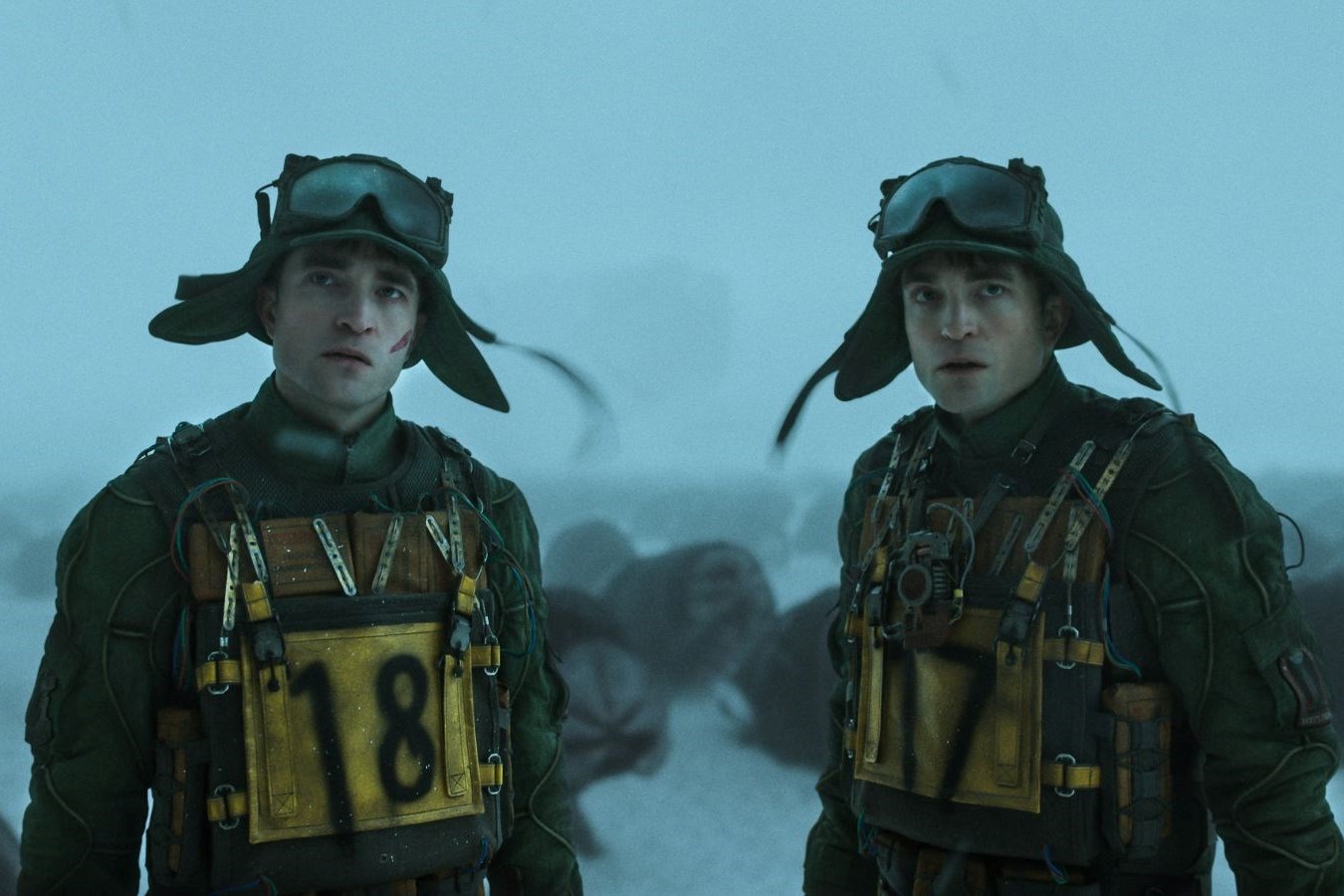As the black comedy about a pregnant woman hell-bent on revenge hits UK cinemas, its writer and director breaks down the feminist antiheroines who provide endless inspiration for her characters
In Alice Lowe’s directorial debut, a coal-black comedy about a mum-to-be-turned-serial slasher, one scene stands out for its blood-soaked intensity. At once anatomically frank and oddly Cronenberg-esque, it’s a prolonged close-up of a belly being slit open and a baby pulled from inside.
“People often ask me if it’s a real caesarean!” says Lowe, who was eight months pregnant on the shoot for Prevenge, gently rocking a pram back and forth. “I’m like, ‘No, I think I’d draw the line there!’ But I’d always envisaged the scene as this total close-up, where you don’t get the chance to look away. We flinch about pregnancy and go, ‘Ooh, we must protect women from this experience,’ but the film is saying why don’t we look at his stuff properly and not flinch away from it?”
Lowe, star of beloved cult comedies such as Sightseers and Garth Marenghi’s Darkplace, projected her own fears about pregnancy for the film, which sees her character, Ruth, avenge her husband’s death at the apparent whim of her unborn baby. “[I feel like] our generation has a fear of pregnancy,” she says, “because we’re so narcissistic ourselves that we’re like, ‘Someone else needs attention? Oh, that’s scary.’”
She also wanted, with her writing for Prevenge, to create a female antihero to rank with Walter White from Breaking Bad and Taxi Driver’s Travis Bickle. In Ruth, by turns vulnerable and unhinged, we get it. But what of the transgressive women that inspired the character? Lowe lifts the lid on some of her favourites.

Tina from Sightseers
“Tina and Ruth are like siblings, they’re related in a DNA way. Tina I see as a naif who comes to power, a latent psychopath whose powers emerge during the film. Some viewers see her as a feminist! She’s quite naive and selfish in the way that children can be, whereas Ruth is more of a grownup; the scales have fallen from her eyes and she feels like she sees the world for what it is, in this cynical light where everyone’s a monster. But all my characters are related because they’re all aspects of me. They’re like these weird, distant relatives that I feel could have been me in a parallel universe!”

Beverly Moss from Abigail’s Party
“People see Alison’s characters as sometimes monstrous, but I see a mirror. It feels so familiar! She’s such a warm, vivacious actor, and when you cast someone like that as a horrible character it makes it really watchable. I was quite conscious of that casting my film, with people like Tom Davis and Jo Hartley, who plays this annoying midwife character. I thought if I cast Jo no one will be able to hate her! It’s this thing of contrasts and tensions you’re trying to get with the audience where they’re being pushed and pulled one way or the other.”
Classical antiheroines
“I often think about classical female figures who would do bad things, like Medea, Antigone and Elektra. You could say that was a way of telling off citizens in ancient Greece, like ‘Don’t behave this way,’ but they’re also amazing works of art. And I often think, ‘Why don’t we see as many female characters like that now?’ When I was researching the Furies, the classical goddesses of vengeance, for the film, I came across this footage by a Czech expressionist director who directed a segment of a film called Crime Without Passion. He didn’t direct the whole feature, it’s a bit like Dalí doing a section of Spellbound. [The surrealist painter famously art-directed the dream sequence in Hitchcock’s 1945 thriller.] It’s this strange, symbolic sequence with these classical goddesses infiltrating 1930s New York and flying into buildings and springing out of spilled blood. I just thought, ‘This is such powerful imagery, it would be so cool for this to be Ruth’s influence.’ I had this idea that the baby is really a Fury, that she’s actually thousands of years old and hugely wise.”

She from Antichrist
“Lars von Trier is one of my favourite filmmakers, but his female characters are often totally punished and martyred; they’re either witches or saints or some mixture of the two. But I think there’s an argument to say women in our society do get punished, that that’s the reality of it. You have to show the dark as well as the light. If women were all really cool, sensible, amazing people on screen how much pressure would that put on women to be like that? I’ve had comedy writers say to me, ‘You’ll love this character because she’s the only one that’s got it together. Everyone else in the show is a total idiot but she’s attractive, she’s intelligent and she’s got a great job,’ and I’m like, ‘That is the most boring thing I could possibly play!’”

Margo Channing from All About Eve
“It’s [Bette Davis’s] stoicism, her implacability – she had such inner poise and strength. The 30s and 40s actually saw a lot of female-driven films about antiheroines, women who commit crimes, who commit adultery, who triumph over the odds, who put their careers over their husbands, possibly even more than now. I think cinema was seen more as a women’s recreation back then. And so amazing female actresses emerged who were more than just an age, a body, a face on-screen. Yes, there were beautiful actresses. But there were also strong characters who by sheer force of will defied categorisation. And their needs and wants are more complex than just ‘finding a man’.”
Prevenge is in UK cinemas nationwide from February 10, 2017.










